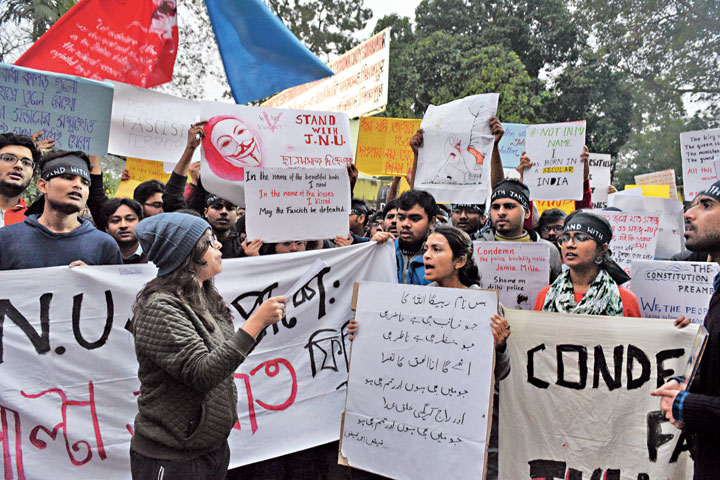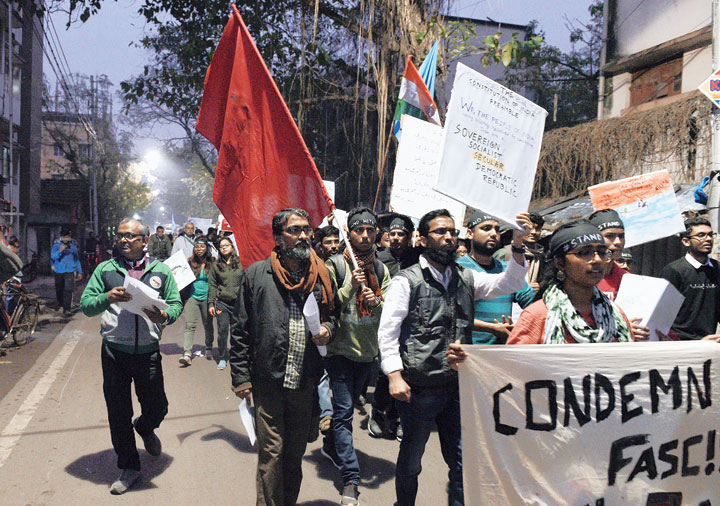Teachers of IIEST joined students in a protest rally and distributed among passers-by pamphlets that explained why the Citizenship (Amendment) Act and the National Register of Citizens were a threat not just to one community but to others as well.
Sources on the Shibpur campus said teachers revered by legions of students past and present joined the march, which started from the institute’s gate No. 1 on College Road and wound its way through Andul Road before returning to where it started.
A teacher of the architecture engineering department said students of Jawaharlal Nehru University and Jamia Millia Islamia were attacked because they dared to protest “the introduction of the divisive laws”.
“They are bearing the brunt of the attack because they have dared to question the powers that be. As teachers, the least we can do is stand by them and allow them to escalate the fight raging across the country,” the professor said.
Residents of the neighbourhoods through which the march passed looked on in surprise because a protest march including students and teachers walking shoulder to shoulder was not a common sight at the 164-year-old institute.
As students raised slogans against the attack on JNU students by masked goons on Sunday, two teachers at the front of the rally were distributing pamphlets among passers-by.
The two-page document in Bengali said: “In post-Independent India this is the first time that a law has been enacted that will decide a person’s citizenship based on his religious identity. The UN has issued a statement saying the act is primarily divisive and it goes against international human rights”.

IIEST students at Thursday’s protest Pictures by Pradip Sanyal
Contrary to what a section of Indians thinks, the document states, the law is not favourable even towards Hindus. “The act neglects Tamil Hindus who have been persecuted in Sri Lanka. The number of Hindus killed in Sri Lanka is much more than those killed in Pakistan or Bangladesh,” the document states.
Sukanta Das, an associate professor of the information technology department, kept distributing the pamphlets as the rally of over 600 went past rickshaws, bikes and pedestrians. There was a steady drizzle but that did not deter the protesters.
“This government came (to power) on the plank of development. But now they have embarked on a course to divide the country on the basis of religion. The CAA and the NRC are their instruments. We decided to join the rally to alert citizens against this evil design,” said Das.
Near Das was Avik Mukherjee, an associate professor of computer science and technology.
Mukherjee said they were walking through localities near the campus because they wanted to sensitise citizens.
Several institute veterans said this was the first time since 2008 that protests erupted on the Shibpur campus. Between 2006 and 2008, there were several protests against alleged atrocities in Singur and Nandigram. Teachers were at the forefront of those protests.
“Many call ours a passive campus. Today, we have been able to get rid of that tag.
We are happy that several teachers have joined the protest,” said Shatarupa Chowdhury, a third-year student of civil engineering.











